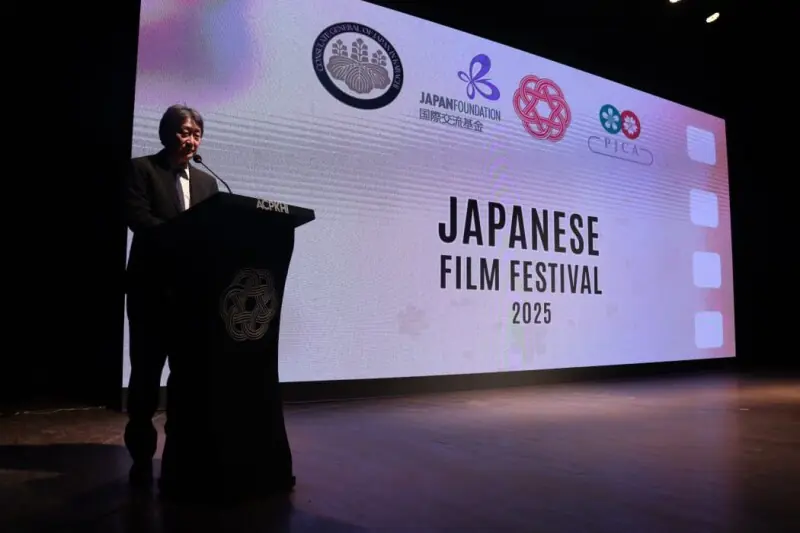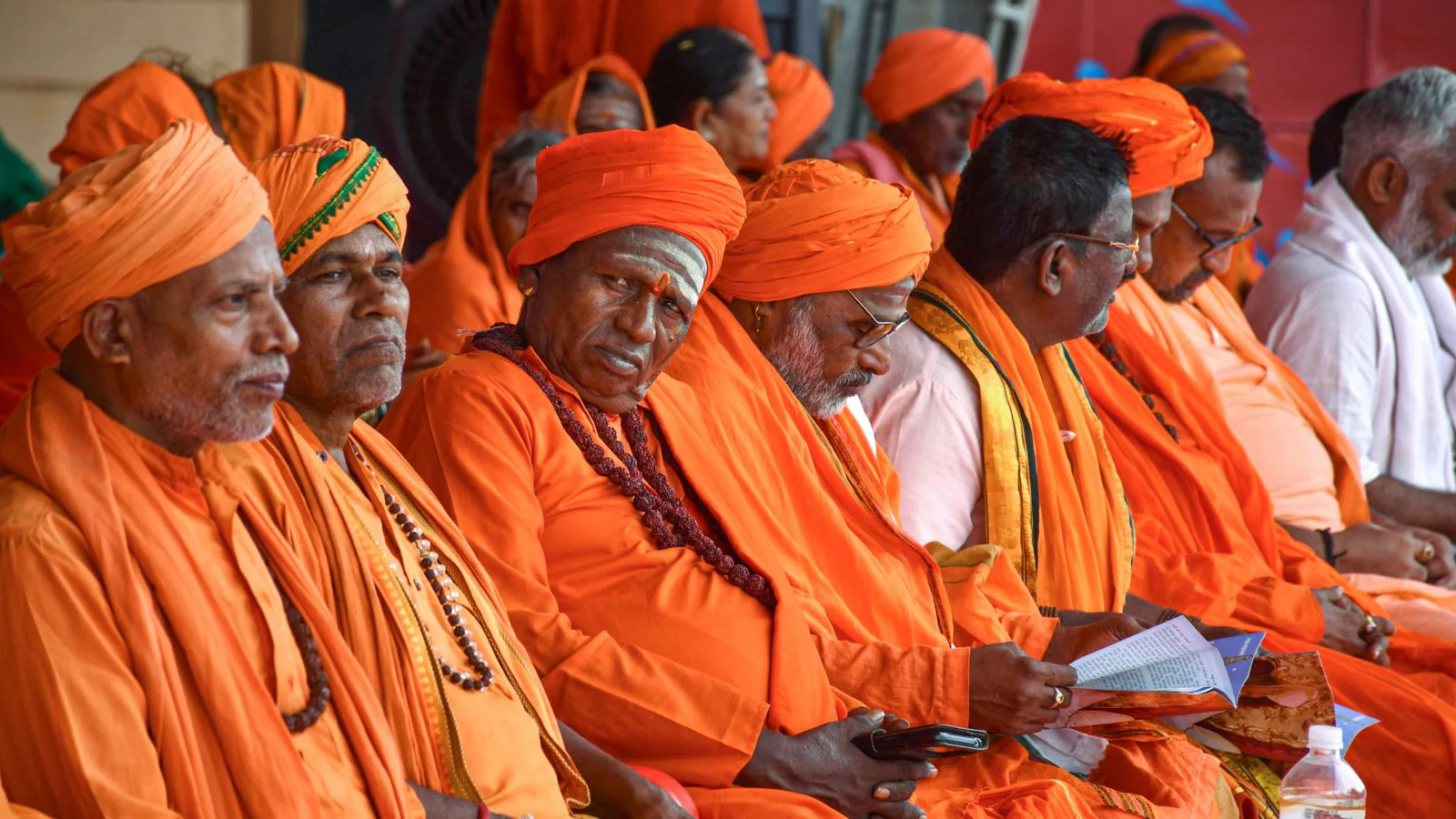The Japanese Film Festival 2025 brought 8 movies to Karachi, including the whimsical Penguin Highway
By Mohammad Kamran Jawaid
Copyright dawn

The Japanese Film Festival 2025 showcased at the Arts Council Pakistan Karachi on September 17 the first of its eight unconventional films: Penguin Highway — a 2018 feature-length anime adaptation of Tomihiko Morimi’s novel of the same name. The animated film, about a quiet little town where penguins start popping up out of thin air, and then miraculously disappear, is as whimsical as it sounds.
The young hero, Aoyama (the voice of Kana Kita), a near-genius fourth-grade school-kid who is infatuated with a ‘Lady’ (Yū Aoi, the character is never named) who works at the local dentist, is enchanted by the mystery.
Also for the sake of mystery — and there is a lot of it, especially when one lets its unconventional pace play itself out — I won’t spoil the film, but I will say this: if you’ve seen the works of Makoto Shinkai (Your Name, Suzuka), you will feel right at home. And if you haven’t…well, maybe you should.
Though Penguin Highway isn’t quite the tearjerker Shinkai’s more popular works are, nor is it as grand, its spectacle is still as magical, and its emotion just as innocent as Aoyama, a boy who knows he is smart and destined for greatness…as soon as he grows up. In fact, he tells the audience all this in the first and last scenes of the film.
Aoyama estimates that he has 3,888 days till he grows up. By the end, the countdown is down to 3,748 days — but he’s a little taller, a little wiser, and still in love with the Lady.
What unfolds in the middle is a quaint little film that flat out refuses the impulse to rush and fall on its face, or leave hard to answer questions for the sake of maintaining an air of being creatively high-brow.
Its mysteries — the penguins, the vanishing objects, the watery orb at a secret opening in the forest that ripples, shimmers and attacks when people get close to it — are not puzzles to be neatly solved, but little wonders to be experienced. Its child-like wonderment is a little like Steven Spielberg’s E.T. — The Extraterrestrial, maybe even Stranger Things, without the horror and the Americanised Stephen King-like approach to adolescence.
Some conventions remain, like Uchida (Rie Kugimiya) an emotionally mature nerd best friend, Hamamoto (Megumi Han) an equally smart fourth-grade girl who likes Aoyama (she bests him in chess, and reads Einstein’s Theory of Relativity for fun), and a trio of bullies — but given the tone these characters carry, can one even count them as conventions, and not a part of life? Not, of course, counting the part about reading Relativity for fun.
Unlike conventional high-concept stories, the threat is never overbearing or destructive (until the few minutes of the climax, that is), where one questions whether the story might take the route of expected cliche — a go-to big reveal in such reveals is that one of the key characters turns out to be a god-like-entity, bored and wanting excitement.
Quite a few anime shows and movies take this, or similar, easy ways out, but not Morimi, screenwriter Makoto Ueda or director Hiroyasu Ishida. The ambiance is too demanding to let such routineness muck up the storytelling.
Speaking of ambiance: the pacing resembles the languor of summer vacation from 20 years ago (the world moves quite fast today, even for kids). The days stretch wide, discoveries arrive in fits and starts that ignites a child’s neurons a million-fold with the spark of imagination.
The animation style shares this sense of restraint and wonderment. Instead of overwhelming with hyper-detailed vistas and kinetic camera-work (this isn’t Demon Slayer — whose last movie did wonders in Pakistani cinemas, playing for more than six weeks in theatres), the film favours uncluttered simplicity, with almost storybook-like clarity to the art. Streets, playgrounds, school, even the dental offices are rendered with realism that feels like a refined version of a child’s painting, so that when the surreal intrudes — thousands of penguins sliding down a road like a tidal-wave and houses end up being suspended mid-air upside down — it strikes with greater force.
On the other hand, the simplicity in the film’s design is deceptive. Paring away excess detail sharpens our focus on Aoyama and his evolving way of seeing.
If Shinkai is a master of grandiose sentiment, Ishida prefers quiet intimacy. The emotional weight of Penguin Highway lies not in sweeping climaxes but in the small astonishments of growing up: a boy’s calculations of time, his awkward confessions and the sudden awareness that the world is larger, stranger, and more uncontainable than even his acute, but young scientific mind can grasp.
In the end, Aoyama is still far and away from getting the answers his scientific mind sought. Instead, he carries away something subtler — an acceptance of mystery, a deepened affection for the Lady, and the knowledge that the act of seeking may matter more than the certainty of knowing. The penguins, as a parallel, are not simply a riddle but a metaphor for life’s fleeting marvels, especially when one is growing up: they appear, they bewilder, and like infantile innocence, they vanish before we can understand them.
Youth, anime and the exchange of culture
At a time when anime films Demon Slayer: Infinity Castle and Chainsaw Man: The Movie — Reze Arc are playing in cinemas across Pakistan for weeks, it makes sense for the Japanese Film Festival — an annual event — to keep anime in sharp focus. In fact, four of the eight titles shown at various universities between September 17 and October 2 are anime.
The films, in playing order were: Penguin Highway, (Arts Council, Karachi) on September 17; The House of the Lost on the Cape (JICC) on September 18 and 19, Awake (NED University) on September 23, After the Sunset (IBA University) September 25, Nosari — Impermanent Eternity (Mehran University) September 30, On-Gaku: Our Sound (University of Sindh, Jamshoro) on September 30, Okko’s Inn (Greenwich University) on October 1, and We Make Antiques (Hamdard University) on October 2.
The festival is partnered by the Pakistan Japan Cultural Association, Sindh, the Pakistan Japan Literature Forum — whose founder, journalist Khurram Sohail, could be seen doing a lot of leg-work at the Penguin Highway screening — and the Japan Foundation.
Japanese Consul General Hattori Masaru told Images that there is a special emphasis on reaching out to the youth. “We are progressing,” he said. In fact, “the number of applicants for the Japanese Language Proficiency Test has doubled in the past five years,” he revealed.
“We are feeling the rising popularity of Japanese anime and manga in Pakistani youth,” Hattori said, emphasising the reach and opportunities universities provide to the exchange of culture, and adding that “much larger public screenings will be the next initiative”.
He also added that in November, the Japan Festival — a much more prominent cultural exchange event — will be held at the Beach Luxury Hotel.
With Punjab Chief Minister Maryam Nawaz’s recent trip to Japan signalling the government’s intention to diversify its partnerships in East Asia, and cultural events for the public by supported and initiated by the Japanese Consulate and its partners, as well as growing audience interest in seeing anime movies in cinemas, the relationship between Pakistan and Japan is no longer confined to politics or trade — the cultural fabric between the nations may very well be tightening, palpably and publicly.



